FOOD FOR THOUGHT
UH Expert Offers Best Practices for Handling Groceries and Take-Out During Coronavirus Pandemic
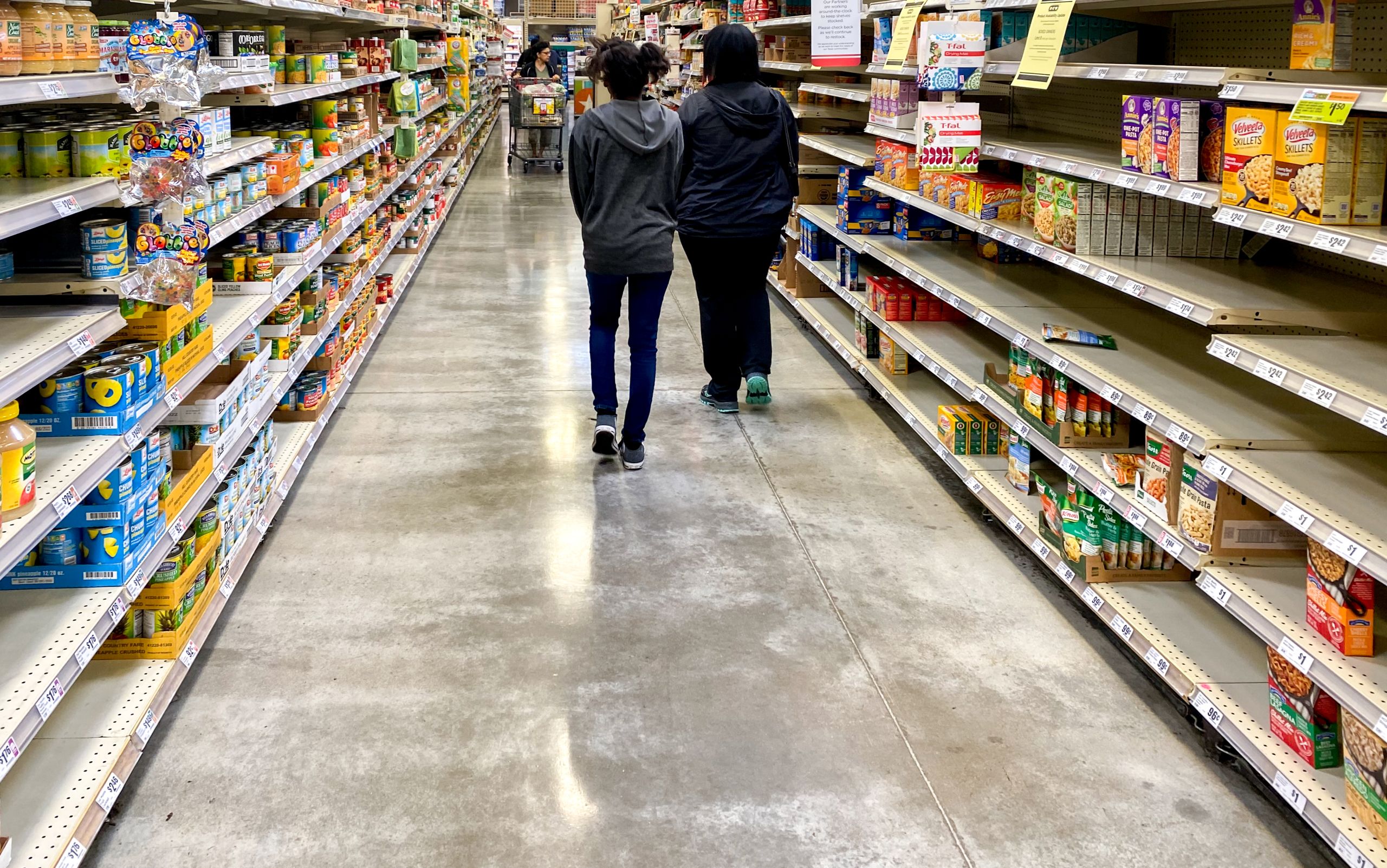
Trips to the grocery store have always been a family event for Sujata Sirsat, assistant professor in the University of Houston Conrad N. Hilton College of Hotel and Restaurant Management. But with the spread of COVID-19 and Harris County’s Stay Home Work Safe order, she relies on online delivery now more than ever.

UH Professor Sujata Sirsat
UH Professor Sujata Sirsat
"If we run out of something essential for my kids, then only one of us will go to the store when it is not crowded,” said Sujata, a mother of two small children. “We want to reduce the number of people in that store and practice social distancing effectively.”
FOOD SAFETY TIPS
With social distancing as our “new normal,” supermarket shoppers are being asked to stand at least six feet apart and restaurants are only open for takeout and delivery. Despite that, many people still have concerns about coronavirus exposure and even wonder if the novel coronavirus can be spread through food.
Sirsat, whose research focuses on food safety and public health, says the Centers for Disease Control and Prevention (CDC) does not see any evidence that the virus is transmitted through food or food packaging. COVID-19 is a respiratory virus that is spread through droplets from sneezing and coughing- not through food.
The next time you head to the grocery store or grab a meal to support your favorite restaurant, Sirsat offers some food for thought to stay safe.
- Wash store-bought produce thoroughly with cool water then dry the produce with a disposable paper towel. That enhances the removal of any pathogens that could be on the surface. Recommendations circulating on social media to wash produce with soap are inaccurate, and Sirsat notes that this could be harmful since soap is toxic when consumed.
- There is some evidence the novel coronavirus can survive on a variety of surfaces including cardboard and stainless steel, even though the risk of transfer to hands and mouth is very low. Sirsat recommends transferring the contents of canned and boxed goods to a container in your home and discarding the original containers.
- Get rid of plastic and paper bags from stores and restaurants, or recycle them. Clean and disinfect the surface that may have been in contact with bags, such as countertops. Both the CDC and Environmental Protection Agency have extensive lists and recommendations for approved disinfectants.
- After every step, always wash your hands for at least 20 seconds.
Sirsat points out that restaurants have food safety standards they are required to follow to avoid the transmission of foodborne bacteria and viruses.
“I really think this is a great time for us to change our mindset and our habits. My hope is that when this is all over, good hygiene practices, such as effective handwashing, will become second nature for everyone,” said Sirsat.
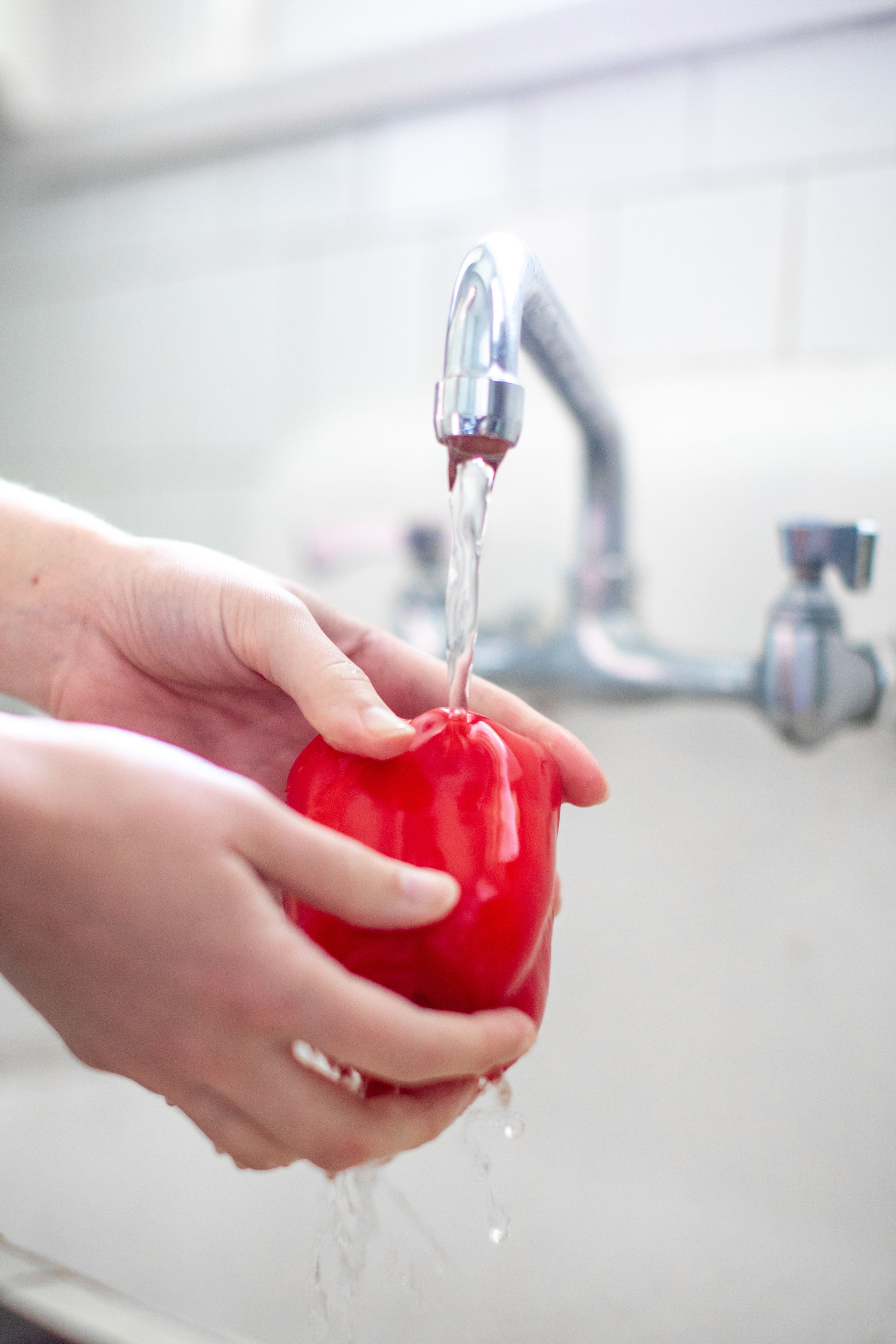
Wash store-bought produce thoroughly with cool water, avoid using soap on produce.
Wash store-bought produce thoroughly with cool water, avoid using soap on produce.
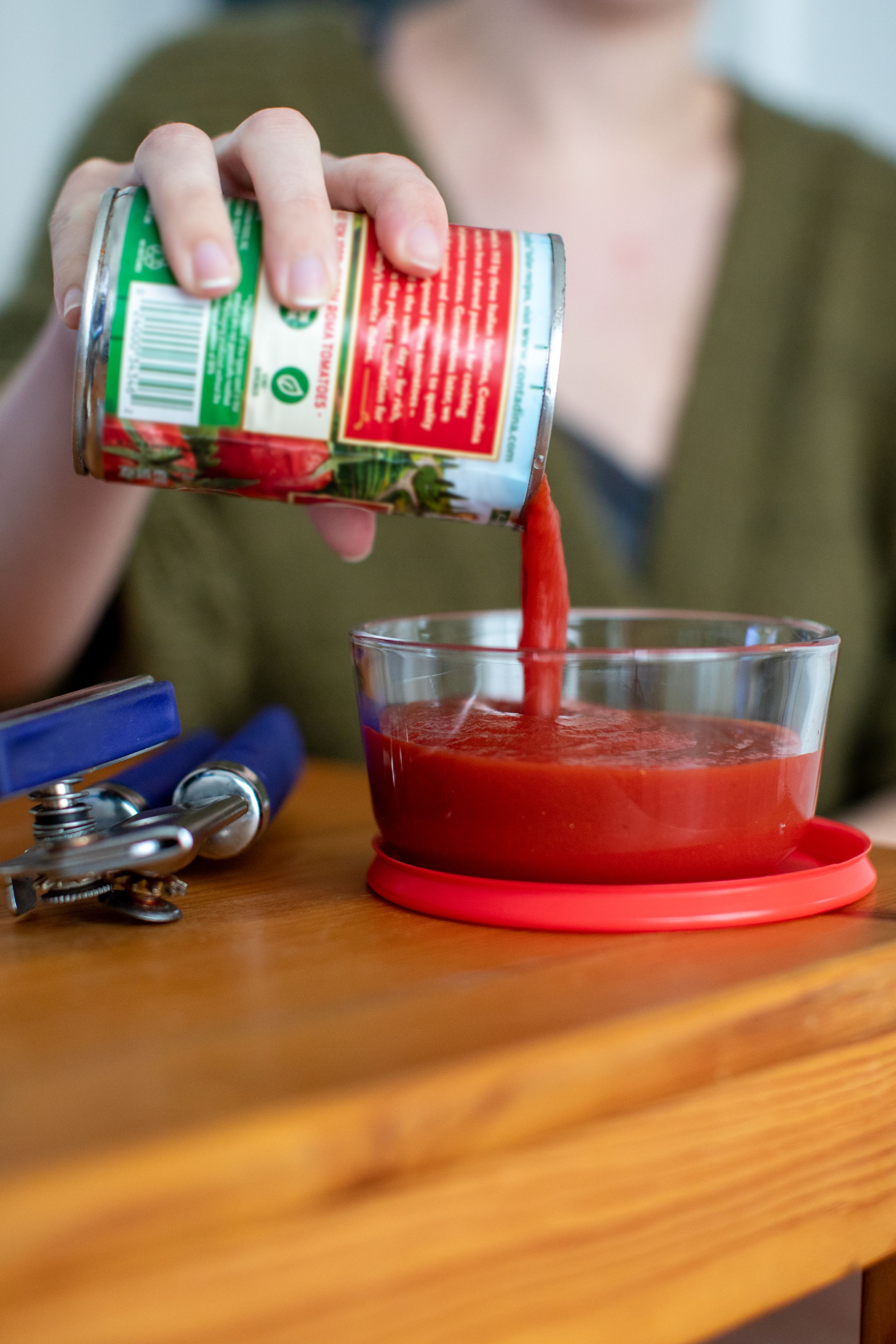
Transfer the contents of canned and boxed goods to a home container.
Transfer the contents of canned and boxed goods to a home container.
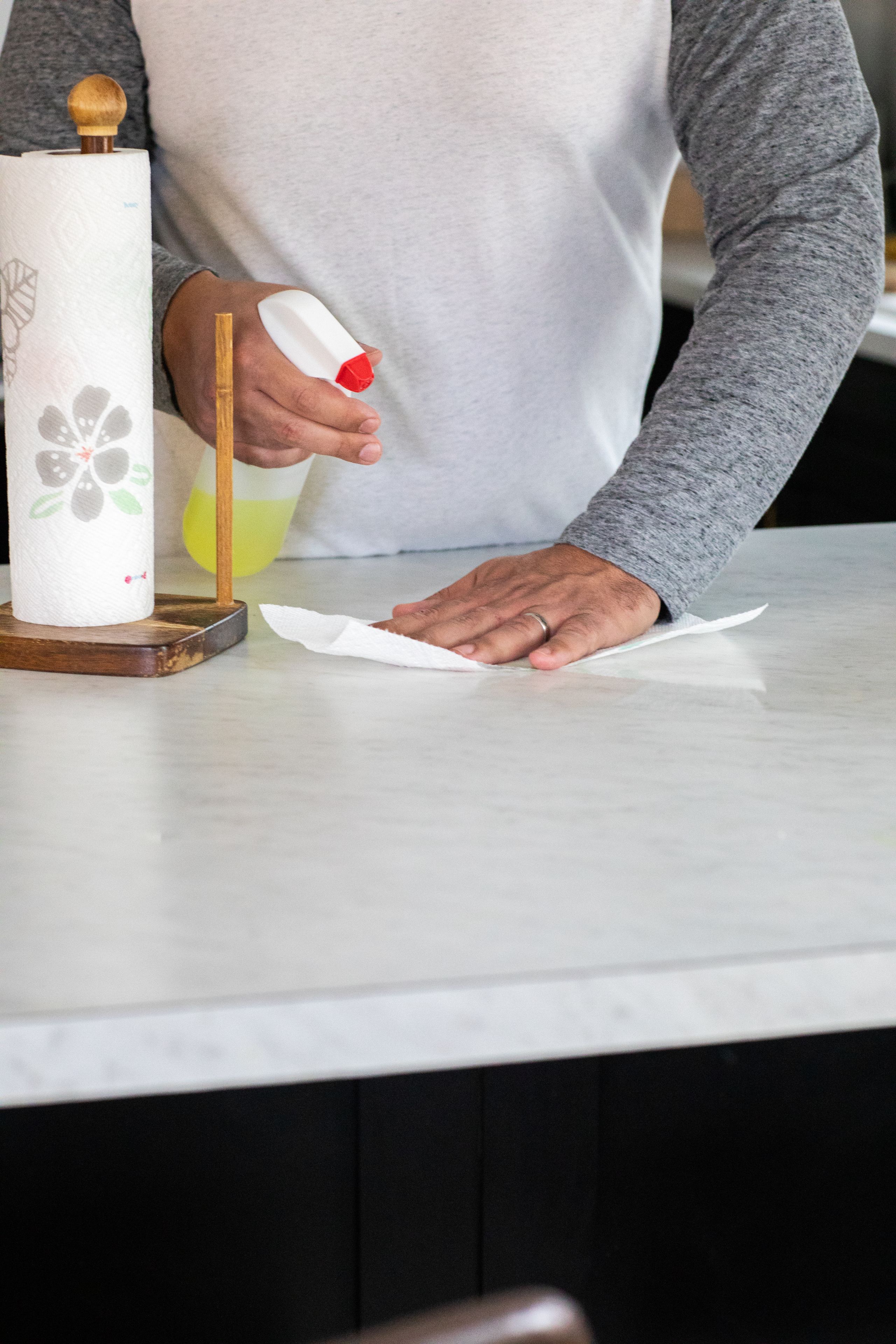
Clean and disinfect the surface that may have been in contact with grocerybags or take-out food containers.
Clean and disinfect the surface that may have been in contact with grocerybags or take-out food containers.
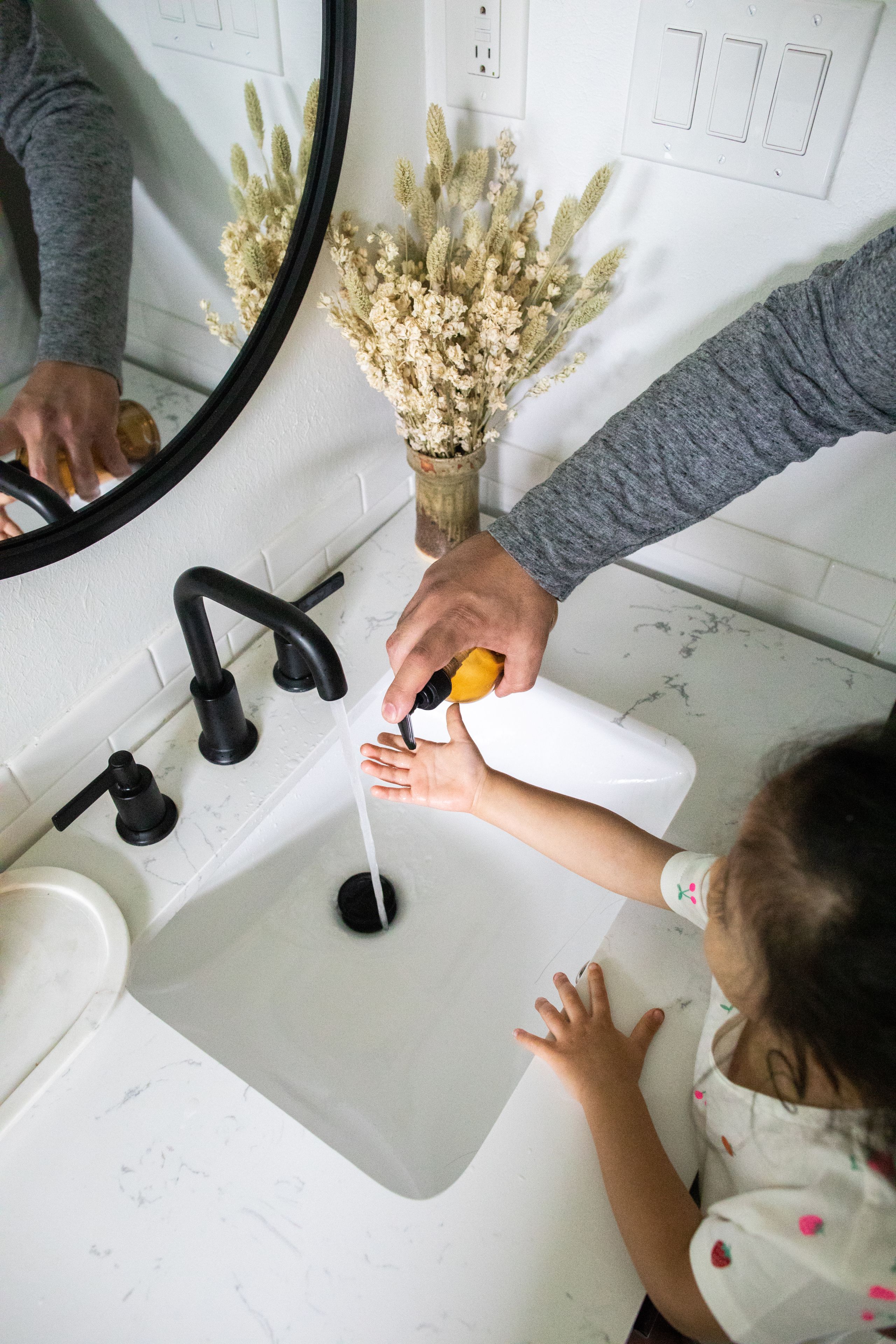
After every step, always wash your hands for at least 20 seconds.
After every step, always wash your hands for at least 20 seconds.
